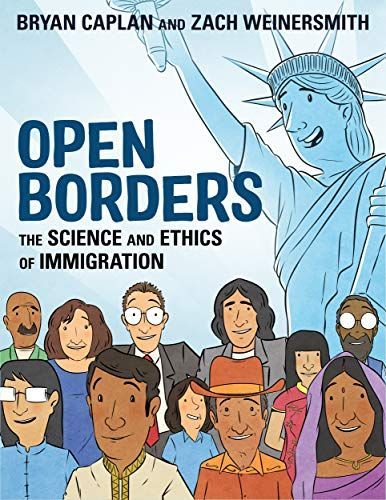
Open Borders The Science and Ethics of Immigration
American policy-makers have long been locked in a heated battle over whether, how many, and what kind of immigrants to allow to live and work in the country. Those in favor of welcoming more immigrants often cite humanitarian reasons, while those in favor of more restrictive laws argue the need to protect native citizens. But economist Bryan Caplan adds a new, compelling perspective to the immigration debate: He argues that opening all borders could eliminate absolute poverty worldwide and usher in a booming worldwide economy—undeniably benefiting all of humanity. With a clear and conversational tone, exhaustive research, and vibrant illustrations by Zach Weinersmith, Open Borders makes the case for unrestricted immigration easy to follow and hard to deny.
Reviews
Gavin@gl
Morgan Holland@morgz
Mahogany Skillings@bibliogeekgirl
Michael Hessling@cherrypj
so@softer
Dr Seth Jones@sdjones
ian alas@ian
Scott Robertson@spr
Misha@yagudin
Magnus Hambleton@mangoham
Jk Jensen@jkj
Arwa El@aruajuanita
Anna Pinto@ladyars